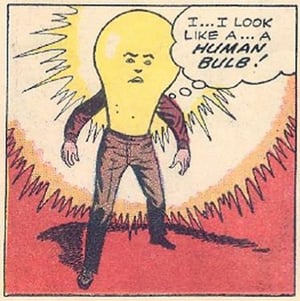I’m happy if it’s actually running in python and not a javascript app with electron.
- 0 Posts
- 28 Comments
Do you consider “slaves” as “normal people”?
The fall of the roman empire was a great thing for many people who didn’t get to lament their woes on a medium that could survive the centuries.

 0·6 days ago
0·6 days agoFreetube on Linux, newpipe on android and maybe a private invidious instance.

 1·8 days ago
1·8 days agoDid you actually read what Schmoo wrote?

 27·8 days ago
27·8 days ago“Property is theft” is a quote by Proudhon (a self-described anarchist - although he’s not really important in contemporary anarchist theory)
Mostly literal, open Nazis, like Nick Fuentes.
 0·14 days ago
0·14 days agoDon’t forget the propaganda.
Why make your games backwards compatible, if you can rerelease them for a premium? 🤑
He just like me fr fr
I’d also like to see more imagery of Jesus smashing up the temple rather than him calmly sitting under a tree.
Holy shit! Can that be any more drawn out and boring?
Internet memes come from the original concept of memes as an element of culture passed on from person to person.
From Wikipedia’s “internet meme” article.
But how can something that doesn’t exist have the capability of consent being violated?
The question is perhaps abstract and difficult to answer, but it’s perfectly valid.
I say that it’s actually impossible to answer, except in the most extreme cases.
My point is that the child at no point enters into the question of consent.
That is because the question was about rights, not consent. The child can’t consent, because existence is a presupposition to consent. That’s why that anti-natalist gotcha doesn’t make sense. It doesn’t follow the rules of formal logic. It’s like a paradox, but formulated as a question.
The only way to have a “right” is for the people around you to agree that you have them.
In what way is that different to negotiation?
I think maybe that’s more morality than “rights,” but I’m not sure how clear the distinction is between them.
As I don’t really give much of a crap about the whole concept of rights, I’d say: forget about the distinction.
I am claiming that birth is a violation of consent. Conception is meaningless to me unless it comes to fruition and bears a conscious being.
But birth is a natural result of conception.
Can you describe the paradox?
As I said above: Existence is a presupposition to consent. The premise violates formal logic.
My point is that the whole premise of “consent for existing” is bogus.
It’s the other side of the same coin. They both argue about the well-being/bad-being of hypothetical humans. It’s bogus, either way.
You yourself said they are not yet existent, so really is joy being “withheld”? That doesn’t work in your framework, I think.
I’m simply meeting your non-sensical argument where it’s at. How is there a ranking of “goodness” at all, be it “bad, because suffering”, or “good, because joy” for the presupposition of existence? That’s like demanding a serious answer for: “how many angels can dance on the tip of a needle?”
You only mentioned the rights of the parents (in a strangely cold and transactional way btw lol).
You asked who gave me as the parent the right. In what way is it transactional? Where is transaction happening? Why is it cold? Who “gives” any rights from your point of view? God?
What of the child’s rights? They must negotiate with you for them after their nonconsensual birth?
What are you talking about?
It’s not hypothetical–a child is born. They live and experience.
You’re claiming by conceiving a child, you’re violating its’ consent. At that point, nothing exists, yet. It’s only a being whose consent can be violated in the hypothetical future.
You’re in a paradoxical state where consent doesn’t matter because the kid doesn’t exist, yet they necessarily must exist to experience the joy you mention
That only happens, because the whole anti-natalist reasons are paradoxical from the start.





That’s fair.